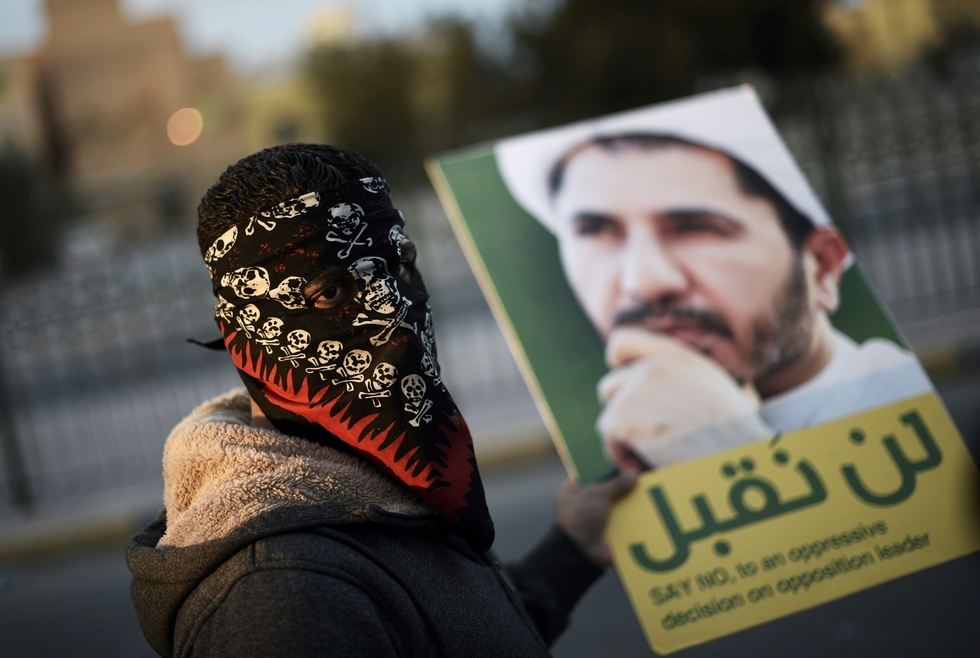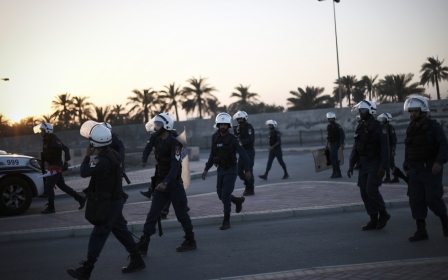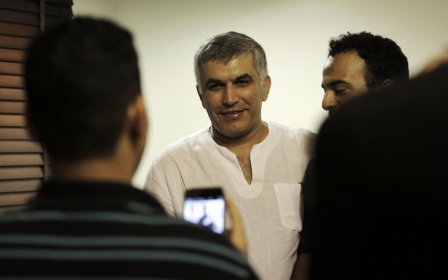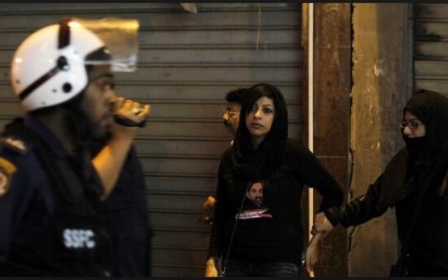Bahrain shuts down largest Shia opposition political group

Bahrain on Tuesday suspended the kingdom’s largest Shia political party and froze its assets as a crackdown on activists intensifies more than five years after the beginning of a pro-democracy uprising.
The official Bahrain News Agency published a statement from the Justice and Islamic Affairs Ministry that said a court had ruled to suspend al-Wefaq in order to “safeguard the security of the kingdom”.
The Wefaq National Islamic Society has been suspended in the past, as Bahrain’s monarchy has grappled with an uprising that began in the capital Manama on 14 February 2011. The party has demanded a transition to democracy and an end to the rule of King Hamad bin Isa al-Khalifa.
Despite insisting it has reformed, the monarchy has ordered a renewed crackdown in recent days with leading rights activists either arrested or forced into exile.
Nabeel Rajab, founder of the Bahrain Centre for Human Rights, was arrested on Monday and is being held in prison for undisclosed reasons. Zainab al-Khawaja, who was recently released from prison, has fled the country after claiming she was threatened with being rearrested.
Wefaq’s lawyer Abdulla al-Shamlawi told the Associated Press that he was served with court papers on Tuesday morning, adding that a hearing took place so quickly he had no time to prepare a defence.
He said that the court documents included accusations that Wefaq has harmed Bahraini security since its founding in 2001 and that it also took part in unrest in during the mass 2011 protests.
"It was out of the blue," Shamlawi told The Associated Press.
A court date has been set for 6 October when it will be decided whether or not to “liquidate” Wefaq.
Hundreds of thousands of Bahrainis gathered peacefully in February 2011 to demand democratic reform from the Khalifa royal family. Bahraini authorities – backed by Gulf allies – responded to the protests with a crackdown, killing dozens of protesters, and since then countless activists and dissidents have been jailed and allegedly tortured.
“Bahrain is bulldozing its civil society,” Sayed Alwadaei, director of advocacy at the London-based Bahrain Institute for Rights and Development, said in a statement.
Commenting on the crackdown at the UN on Monday, Zeid Ra’ad al-Hussein, the UN High Commissioner for Human Rights, said at least 250 people have lost their citizenship in Bahrain "because of their alleged disloyalty to the interests of the kingdom".
"Repression will not eliminate people's grievances; it will increase them," he said.
Bahrain rejected criticism of its crackdown and on Twitter Foreign Minister Khalid al-Khalifa wrote: "We will not allow the undermining of our security and stability and will not waste our time listening to the words of a high commissioner who is powerless."
New MEE newsletter: Jerusalem Dispatch
Sign up to get the latest insights and analysis on Israel-Palestine, alongside Turkey Unpacked and other MEE newsletters
Middle East Eye delivers independent and unrivalled coverage and analysis of the Middle East, North Africa and beyond. To learn more about republishing this content and the associated fees, please fill out this form. More about MEE can be found here.




